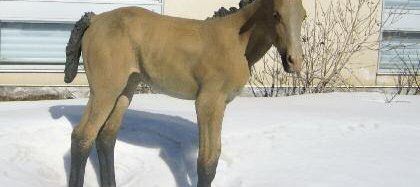Every Community has a Story

Related Programs

Every community, large and small, has a story and cultural assets that help set it apart from those around it. For the past several years, urban and rural planners have continued to explore how a community’s cultural assets can be used to build economic opportunity, enhance quality of life for residents, increase civic participation and ignite community pride and vibrancy.
Gord Hume, author and chair of the Ontario Municipal Cultural Planning Partnership, points out that in their quest to stand out, or even survive, some municipalities have realized they must offer more than just infrastructure, they must consider how they can influence quality of life. According to Hume, “cultural planning is about harnessing the assets of a community; celebrating the unique resources, such as heritage properties, natural assets and community spirit; revitalizing downtown cores that too often have deteriorated; honouring and respecting the unique contributions of our artists and artisans; creating diverse and safe neighborhoods; raising the bar for urban design; protecting our green spaces and becoming better stewards of our environment; and the many other elements that make up a community moving forward confidently in the 21st century.”
In his article on Building a Creative Rural Economy, Dr. Greg Baeker points out how municipalities large and small are turning to municipal cultural planning as a tool for building local economic through creativity, culture and quality of place.
Organizations such as the Creative Cities Network in Canada, which was established as a non-profit in 2002, brought municipal leaders from across the country together to develop processes and guidelines, and share best practices around cultural planning. Community leaders are encouraged to assess their tangible and intangible assets, opportunities for cultural engagement; media and underlying policy and support programs. Thanks to support from the Olympic Legacies Fund, the organizations partnered in creating community resources that can be access through the Creative Cities Network web site: www.creativecities.ca.
Another popular concept that emerged from municipal cultural planning was “place-making”, which is often used when referring to the process of transforming a physical space into a place that is culturally meaningful. “Placemaking” can be seen in the development of urban areas referred to as “China Town” or “Little Italy”, or to areas that have used their heritage to develop campaigns or community taglines, such as “Montmarte: Paris of the Prairies” or “Duck Lake: Canadian History in Harmony”.
Cultural performance matters…
The competitive advantage of provinces is directly related to the performance of its cities, not just economically, but socially and culturally. While cities have an important role, all communities, both urban and rural, contribute with innovation, economic development, as well as social and political interaction. Leading cultural policy research Neil Bradford narrows it down to five principles:
• Place matters. Cities and communities are the places where the challenges critical to Canada’s future – economic growth, social inclusion, cultural diversity, ecological sustainability – are being played out.
• Collaboration is vital. No one actor has the capacity to delivery inclusive, innovative and sustainable cities.
• Ideas come from the “ground up.” Communities must be involved fully in developing solutions.
• Every city and community is unique. Governments must be flexible in adapting to the assets, challenges and opportunities of different places from the big city-regions to the smaller communities.
• Cities, suburbs, and rural areas are inextricably linked. Metropolitan spaces need integrated, region-wide approaches.
Excerpted from Creative Cities: “Structured Policy Dialogue Report” by Neil Bradford, Canadian Policy Research Networks Inc., August 2004.

